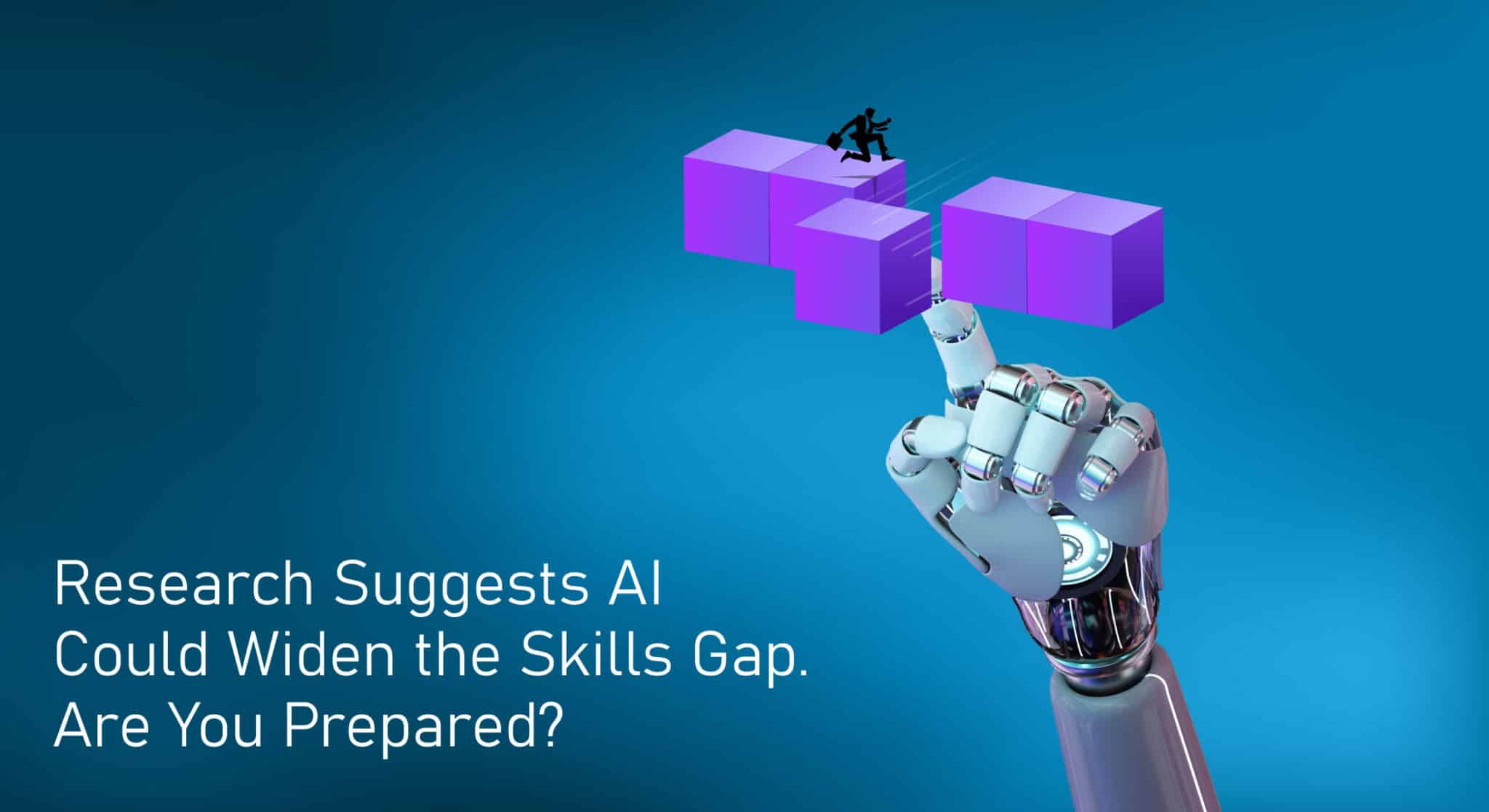September 3, 2024

A huge amount of debate is currently taking place surrounding the impact AI will have on society. Some say that AI will make us all wealthier and give us more leisure time than ever before. But there are widespread concerns that the advent of generative AI and machine learning could plunge millions of people into relative poverty, unemployment, and widening inequality.
It doesn’t matter which side of the debate you’re on, it’s vital that you get prepared for what’s coming. If the findings of a recent study by Allianz are to be believed, millions of people are unprepared. There’s a significant lack of know-how and knowledge where AI is concerned. That’s why training providers such as Wintrado Academy are accepting more students than ever before.
People are worried about AI. But are they right to be? Let’s examine Allianz’s research to find out more. But before we do that, take a look at two courses that could broaden your AI horizons and transform your career in the future: Developing AI Solutions with Python course and AI for Business Leaders and Key Decision Makers.
When it comes to AI and its impact on jobs and prosperity, it seems feelings differ greatly, depending on who you ask. The survey, which included more than 6,000 people from across continental Europe, revealed that more than a third are worried about AI, while 46% of respondents said they fear artificial intelligence will lead to fewer jobs.
But perhaps the most startling revelation was the fact that more than half of the people surveyed said AI could increase already widening inequality levels around the world. People are obviously concerned that the current skills gap will only grow once AI becomes part and parcel of everyday life.
Meanwhile, only around a fifth of those surveyed said that they’re optimistic about the future economic prospects made possible by AI.
There may be a clear disconnect between the views ordinary people hold on AI and those of major corporations and banking institutions. Take Goldman Sachs, for instance, which is predicting that generative AI could increase the world’s GDP by up to 7% over the next decade. McKinsey reckons AI could add up to EUR 24 trillion to the world’s economy.
So with financial experts predicting greater prosperity, why are people worried? Perhaps the widespread misunderstanding of AI and its capabilities is to blame. Maybe people are growing increasingly weary of seeing the wealth gap growing year after year.
Whatever’s happening here, it’s clear that there’s a significant need for AI training and awareness across Europe.
This is where things get a little worrying for ordinary people. While there’s little doubt that AI is about to make a lot of people a lot of money, there are concerns that this new wealth won’t be accessible to the vast majority of people. And, in fact, AI could be about to seriously affect job and career opportunities for people who aren’t prepared.
The International Monetary Fund, for instance, says that 60% of all jobs could be affected by AI in the short to medium term. And Allianz Research’s study revealed that 46% of people believe that job cuts will arise from the increased productivity levels delivered by generative artificial intelligence.
The reality is that no one really knows how jobs and skills gaps will be affected by the advance of AI. But there is cause for optimism. Research involving more than 5,000 customer service representatives revealed that AI increased staff productivity levels by 14%. But when only new and low-skilled workers were taken into account, this figure soared to 35%.
This is great news for anyone worried about what the future of AI holds for the lowest-paid workers in society. In reality, using AI and machine learning could NARROW the skills gap. But that would require extensive training, as the majority of the population knows very little about the AI technologies that could transform their professional lives.
AI is already revolutionizing the way some of the world’s largest industries operate, including manufacturing, healthcare, pharmaceutical, customer service, and even the arts.
According to Allianz, the insurance industry stands to be one of the most prolific beneficiaries of AI. Predictive analytics are already being used to fine-tune both marketing campaigns and product development. And everyday transactions within the insurance sector such as claims processing and customer service are already being delivered by automated processes executed by algorithms, chatbots, etc.
In the not-too-distant future, everyone will need to have a basic grasp of AI tools and technologies. And those who wish to excel will need to embrace these tools to execute just about every imaginable task and responsibility.
It doesn’t look like the AI industry will be regulated any time soon, despite the fact that almost half the people surveyed by Allianz think it should be. So, for now, assume that AI will continue improving exponentially over the course of the next decade.
Claim your destiny. Don’t miss out on the AI revolution, as it has the power to propel your career forward. A great place to start your learning is by enrolling on the Developing AI Solutions with Python course. And if you’re a leader, learn how to leverage AI to improve your decision-making skills by signing up for our AI for Business Leaders and Key Decision Makers course.
Don’t get left behind. Enrol in the Wintrado Academy today, and don’t get pushed aside by the AI revolution – be one of its leaders!